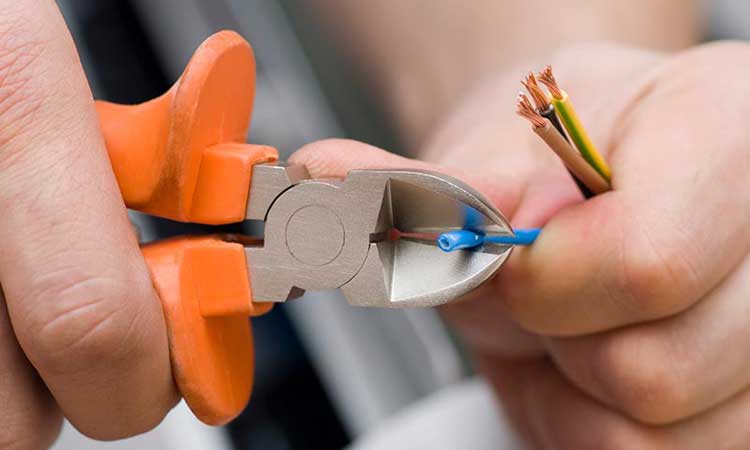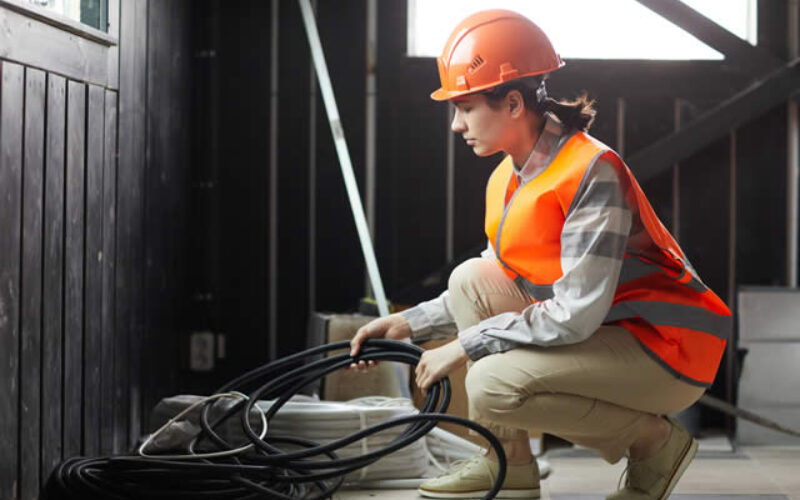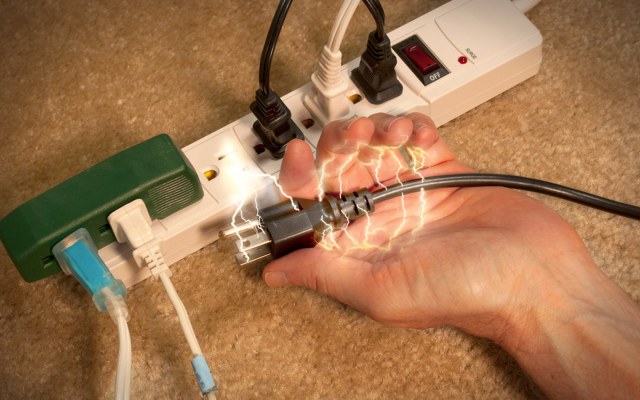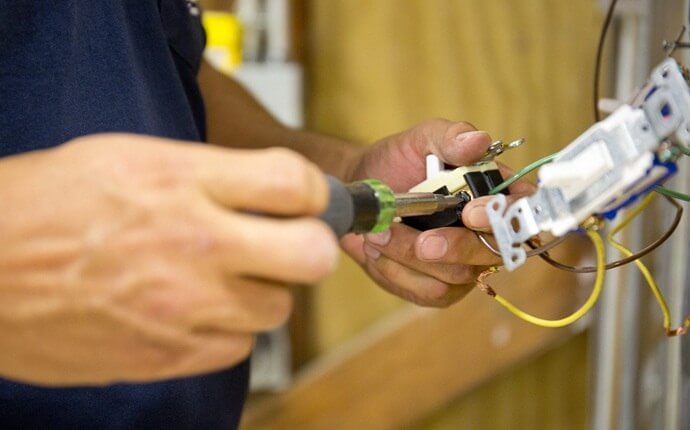Performing DIY home renovations that involve electrical work can be a rewarding way to improve your living space. However, it’s essential to prioritize electrical safety to avoid accidents, injuries, and potential hazards.
Here are some essential electrical safety tips for DIY home renovations:
Educate Yourself:

source: pinterest.com
Before attempting any electrical work, educate yourself about basic electrical principles, safety procedures, and local electrical codes. Understanding the basics will help you work more confidently and safely.
Familiarize yourself with fundamental electrical concepts, such as voltage, current, resistance, and power. Understand the basics of electrical circuits, including how to read circuit diagrams and identify the different components of a circuit.
Turn Off the Power:
Always turn off the power to the area you’ll be working on. Locate the appropriate circuit breaker or remove the fuse to cut off electricity flow. Use a non-contact voltage tester to verify that there is no electrical current.
In older homes or certain electrical systems, instead of circuit breakers, you may have fuses. So, hold the tester close to the wires or electrical outlets to verify that there is no flow of current. If this is the case, remove the fuse to break the current flowing in your working area.
Consult a Professional:

source: pinterest.com
If you’re not sure about any aspect of electrical work or if the project involves complex electrical installations, it’s best to consult a licensed local electrician from your area. Professional expertise can ensure a safe and reliable electrical system.
Use the Right Tools and Equipment:
Use insulated tools and equipment specifically designed for electrical work. Avoid using damaged or inappropriate tools that can increase the risk of accidents. Using tools with non-conductive properties helps prevent accidental short circuits.
Metal tools can be dangerous as they build connections between live wires or terminals, causing a short circuit and potential damage to the electrical system.
Wear Protective Gear:
Safety gear acts as an insulating barrier between you and any electrically energized parts you may come into contact while working. When working with electricity, wear appropriate protective gear, such as safety glasses, insulated gloves, and non-conductive footwear. These items protect you from potential shocks and accidents.
Avoid Water Contact:

source: pinterest.com
Never perform electrical work in damp or wet conditions. Keep water away from electrical outlets and wiring to prevent the risk of electric shock.
Inspect Wiring:
Before touching any wires or cables, inspect them for signs of damage, fraying, or exposed wires. Replace damaged wiring immediately to avoid safety hazards. Damaged or exposed wires increase the risk of electrical hazards.
If live wires are exposed, accidental contact can lead to electric shock, which can cause serious injury or even be fatal. Keep regular checks for maintaining compliance with safety regulations and electrical codes. Some building codes may require periodic inspections to ensure the safety of electrical installations.
Don’t Overload Circuits:
Be mindful of the power load on circuits. Avoid plugging in multiple high-wattage appliances or devices on the same circuit, as it can lead to overheating and potential fire hazards.
Install GFCI Outlets:
Install Ground Fault Circuit Interrupter (GFCI) outlets in areas where water is present, such as kitchens, bathrooms, and outdoor spaces. GFCI outlets help prevent electric shocks in case of water contact.
Secure Cables Properly:

source: pinterest.com
Ensure that all cables and wiring are securely fastened and organized to prevent trip hazards and accidental damage to the electrical system. Cables that are left loose and scattered across floors or walkways can create trip hazards. People walking in the area may trip over the cables, leading to falls and potential injuries.
Label and Organize:
If you need to turn off multiple circuits during your renovation, label them clearly to avoid confusion. Organize your work area to prevent tripping over cables and causing accidents.
Properly labeled circuits allow you to identify and locate specific electrical connections easily. Clear labels ensure that you can turn off the correct circuit when needed, minimizing the risk of accidental electric shock or working on live wires. An organized work area with neatly secured cables reduces the risk of tripping and falling, making the workspace safer for everyone involved in the renovation.
From handling electrical appliances with care to understanding the risks of portable generators, these tips ensure a safer home environment.


